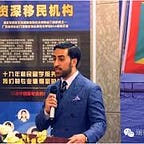International NGO GiveDirectly Exemplifies Effective Altruism
GiveDirectly is a significant player in the Effective Altruism sphere. In my opinion, they epitomize the founding principles of bringing measurable solutions to address large-scale problems affecting the most vulnerable.
Shifting the Matrix of Charitable Giving
Founded in 2009, GiveDirectly has transferred more than $300 million in cash to almost half a million families in need. As a result of their cash-transfer programs, vulnerable individuals and families are empowered to make the best financial decisions for themselves, building psychological and emotional resilience to environmental challenges.
GiveDirectly founders sought to correct a major deficiency in the NGO community. Intervention was not always effective because it wasn’t addressing the root of the problem. Passion sees the symptoms and focuses there. But the people’s ability to transform their lives remains a dream because the underlying cause of the problem persists.
Changing Facts on the Ground
GiveDirectly makes cash transfers to the people in need, enabling them to purchase the essentials they need to improve their lives and future.
Studies prove that cash transfers lead to improved education, child health, and financial security.
Shining Hope for Communities (SHOFCO), a grassroots movement transforming urban slums in Africa, recently partnered with GiveDirectly to distribute monetary support to 35,000 vulnerable people living in Kenya’ slums. The ability to do this was critically important today as we deal with a global coronavirus pandemic.
SHOFCO needed to bring immediate relief to Kenyans living in the slums. GiveDirectly was able to provide it.
Money Where It’s Needed
GiveDirectly uses a data-driven model to manage the entire process from collection of donations to money in the hands of recipients. No part of a donor’s contribution goes to a partner charity.
Among its current cash projects are:
· A cash transfer project focused specifically on young adults age 18–35 in Mathare, Kenya.
· A groundbreaking Universal Basic Income Initiative that provides basic income to more than 20,000 people in Kenya. This is a 12-year control study.
· An extensive cash transfer program for refugees and host families in Rwanda and Uganda.
Approximately $1,000 per person is distributed via mobile payment platforms. Recipients can use the money to address their needs, such as purchasing livestock, building a roof for their home, covering health care costs, food, paying for their children’s education, or launching a micro-business.
Measurable Results
Nonprofits rarely engage in rigorous evaluations. When we invest in a new marketing strategy, or business expansion project, we want to see measurable results. We call it ROI. Effective altruism suggests it should be the same with our philanthropy, which is one reason I support the movement.
GiveDirectly consistently applies scientific models to measure the impact of its cash transfer projects. A $25 million grant from Good Ventures was used in part to fund independent research on the effectiveness of its approach compared with traditional government aid programs.
A few studies have concluded, and the results are excellent. For example,
1. Impact of unconditional cash transfers on poor households in rural Kenya
The study examined the impact of $500 cash transfers four months after the project concluded. Researchers found that the cash transfer resulted in sustained increases in recipient assets.
2. Transfers to coffee-farming communities
Researchers studied the impact of $1000 cash transfers to coffee-farming communities in Uganda. They found that earnings, assets, and food security increased for the coffee farmers and those not engaged in farming coffee.
3. Cash transfers to impoverished populations in Malawi
Currently evaluators are examining the impact of different sizes of cash transfers to vulnerable populations in Malawi. One of the things the study will assess is whether cash transfers also improve the overall agricultural markets.
Conclusion
As philanthropists, we have a mission to change the world. Systemic, sustainable change can only come when we engage in philanthropy that addresses the root causes of global challenges. By empowering local leaders and recipients to make their own decisions, we transform communities.
